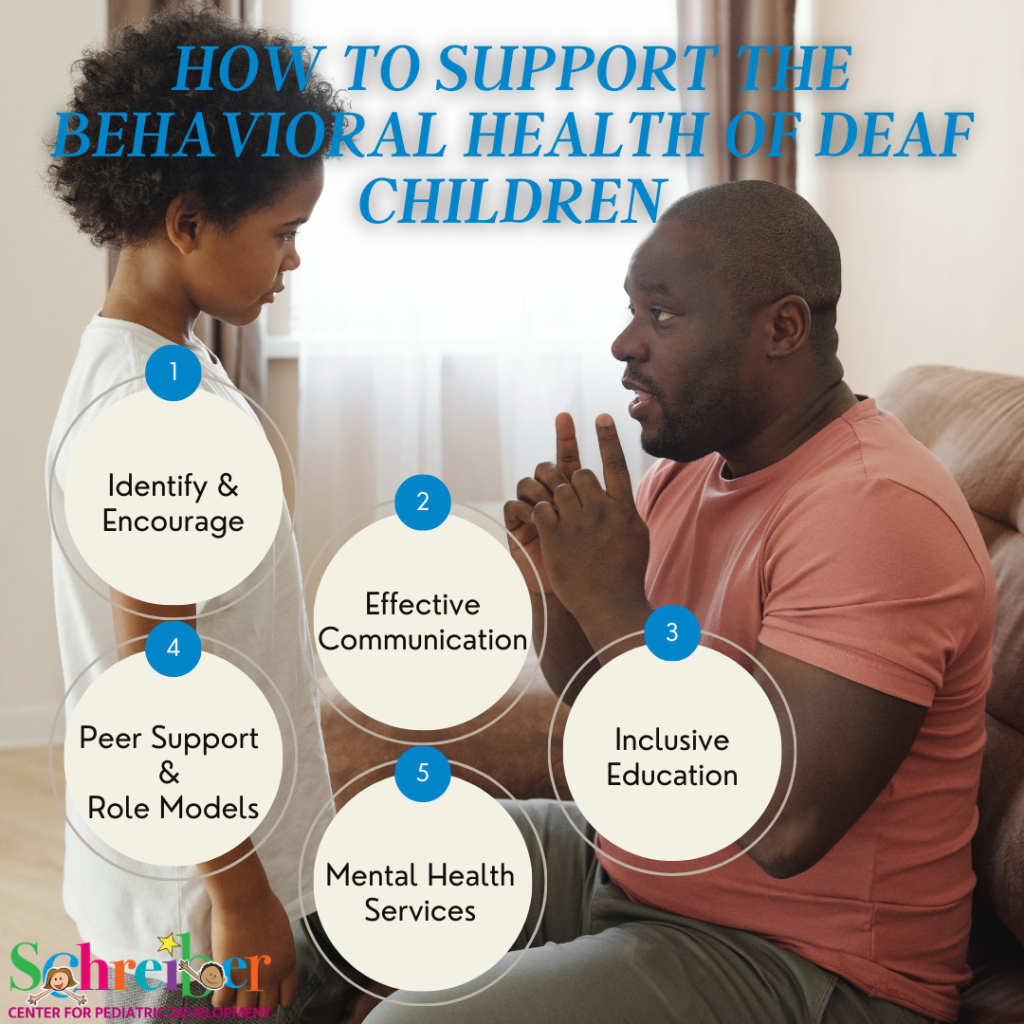Behavioral Health
2024 Schreiber Ambassadors Announced at the 40th Annual Schreiber Gala!
March 18, 2024Every year we choose a few lucky kiddos to be Ambassadors of our mission. To join us as special guests at our events. To share their stories with our families and friends. To highlight the life-changing services our therapists are providing every day to those who need them most. This year we’re proud to announce that we have four amazing kiddos serving as Schreiber Ambassadors.
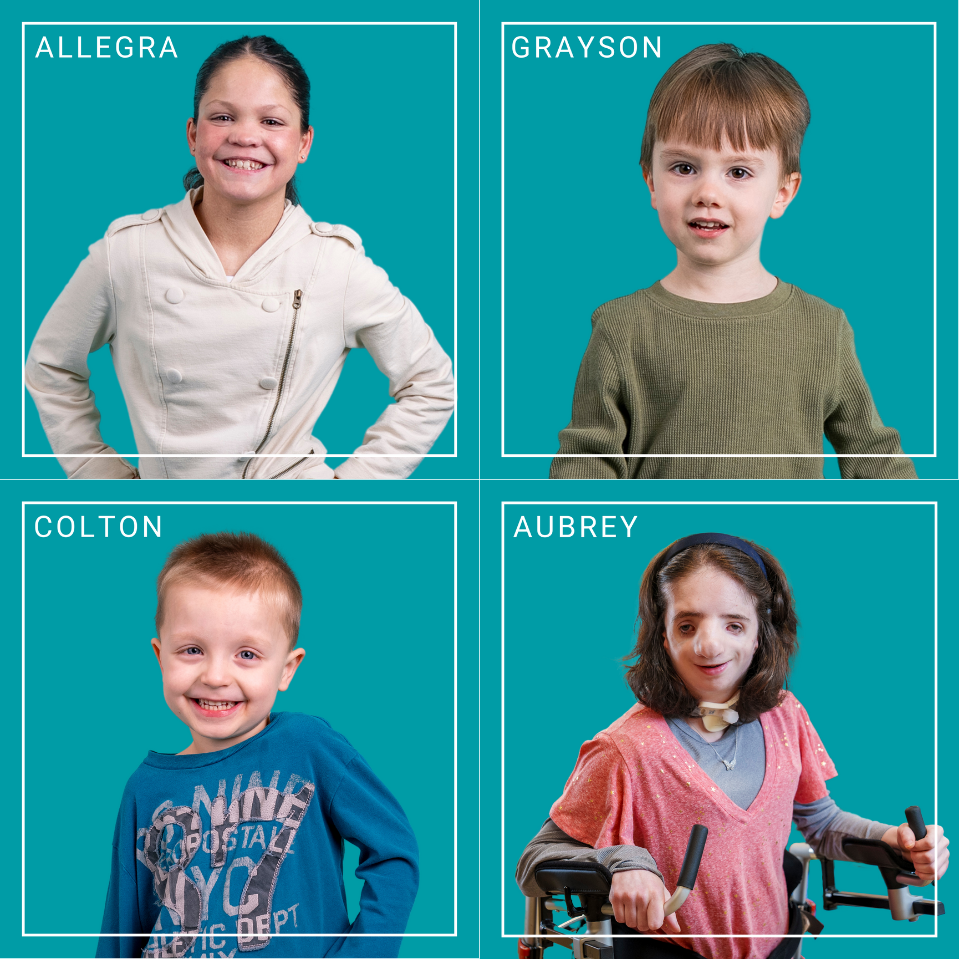
From oldest to youngest, we’d like to now introduce you to our 2024 Ambassadors, Aubrey Jacoby, Allegra Essis, Colton Kiss, and Grayson Smith.
Aubrey Jacoby
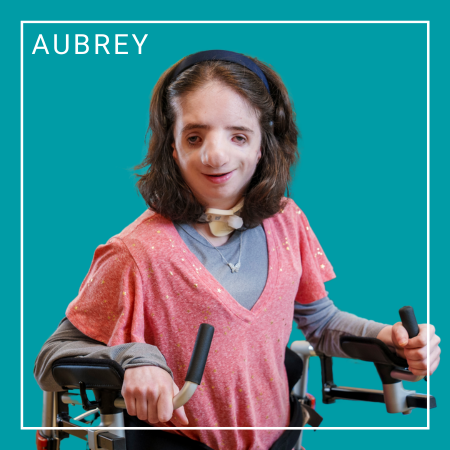
Aubrey is an 18-year-old, senior in high school, with a passion for video editing and a love of music. She has been a Schreiber client since she was three years old, when she began therapy sessions to counteract the physical effects of her cerebral palsy diagnosis. Through physical therapy and occupational therapy sessions Aubrey has gained and sustained both gross and fine motor skills that help her navigate through life as independently as possible.
Aubrey has undergone over 80 surgeries in her lifetime to combat difficulties associated with her diagnoses of both cerebral palsy and Treacher Collins syndrome. Because she had difficulty breathing one of these surgeries was to insert a tracheostomy tube, creating an opening in her trachea from the outside of the neck to help oxygen reach her lungs. She began speech therapy at Schreiber after that surgery and re-learned how to speak with the trach and use an augmentative and alternative communication (AAC) device to communicate with the world and has since graduated from speech therapy. Just like most 18-year-olds she’s excited to graduate from high school next, and start working on building a career for herself.
Allegra Essis
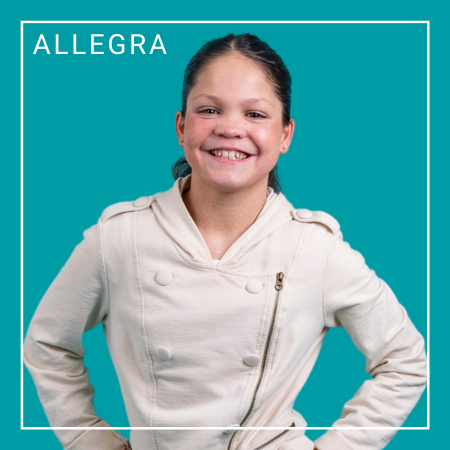
Allegra is 13 years old and in her last year of middle school, where she is a social butterfly with a flair for theater. When she was just an infant her parents enrolled her in early intervention therapy care to combat challenges she was facing with her gross motor skills. At five years old she was diagnosed with cerebral palsy and has been a frequent flyer at Schreiber for physical therapy ever since. During her time at Schreiber sha has gained a lot of core strength, flexibility, balance, and of course confidence which all help her pursue her interests in dance, horseback riding, and skiing.
Early on, Allegra had difficulties standing up, walking, running, balancing, and using stairs. Her parents’ initial goals were for her to gain the strength and balance needed to walk independently. She was fitted for orthotics to help stabilize her gait and help her do these activities, which she continues to use today. A recent surgery on her hamstrings set back her progress slightly when it left her wheelchair bound for a time. Through dedicated physical therapy sessions at Schreiber three times per week, she is now back to her normal, walking independently and participating in her many activities.
Colton Kiss
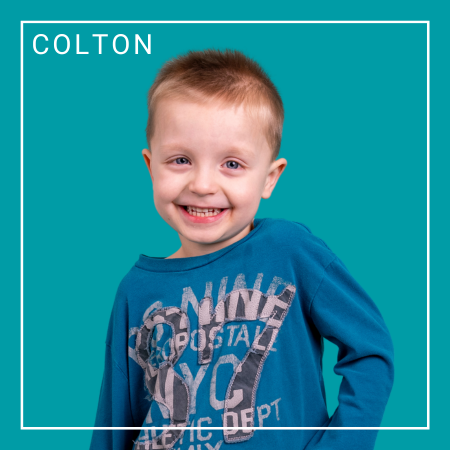
Colton is almost four years old, and attends our Circle of Friends Academy preschool, where he enjoys learning and playing with his friends. He has attended therapy at the Schreiber center for three years, after a complication at birth resulted in four brain hemorrhages as well as a blood clot on his cerebellum that caused permanent damage. Shortly after he was born his mom was told by doctors that he may never walk or talk due to the damage done. His mom was familiar with Schreiber and knew that our center was his best chance at beating those odds.
He currently participates in all four of our offered therapies, physical, occupational, speech, and behavioral health to help him combat the challenges of his diagnosis. Please who have known Colton through his entire journey have witnessed the miracle of his transformation. And people who meet Colton today would never believe that there was ever a chance that he may have never learned to walk or talk. His physical therapy sessions have helped him build core strength and balance needed to sit, stand, and walk on his own. Occupational therapy has helped him develop the coordination and focus needed to perform self-care tasks like dressing himself and feeding himself. Speech therapy has given him the ability to communicate his wants and needs with those around him. And behavioral health therapy has taught him how to communicate those wants and needs more appropriately.
Grayson Smith
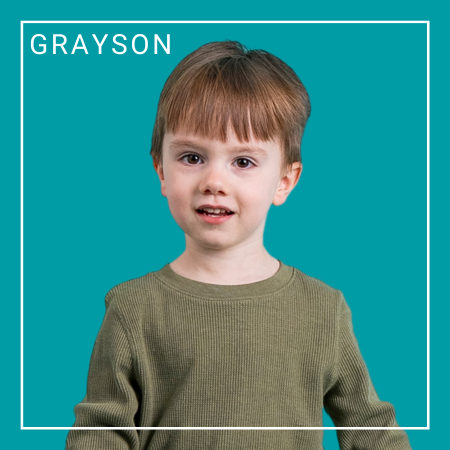
Grayson is three years old and has attended therapy at Schreiber since he was just nine months old. First for physical therapy to address a diagnosis of low tone, where he built the strength and coordination required to sit, stand, walk, and run on his own. A year after starting and later graduating from physical therapy he was also diagnosed with level 1 autism. At which time he began speech therapy and occupational therapy to help him gain both physical and social skills.
Once a week, he still comes to the Schreiber center to work on his sensory processing skills, social skills, and self-care tasks in occupational therapy. He uses the skills he learns in therapy every day to express his wants and needs effectively with those around him and navigate through new social situations that would have had him shutting down in the past. Thanks to occupational therapy he is also now able and willing to perform daily self-care tasks on his own and with the help of his parents without a struggle. His parents are confident that the tools he’s learning in therapy will ensure that he is developmentally ready for school in the next few years. His confidence has already grown tremendously as he learns to self-advocate and even initiate new friendships on the playground.


While each of our 2024 ambassadors have been attending therapies at the Schreiber center for a few years, we will be highlighting their progress and achievements on our social media channels this year to allow our friends and supporters to witness firsthand what makes our pediatric therapy center so special. So, make sure to follow us on Facebook and Instagram to watch their stories unfold.

We’ve also made fun collectible trading cards for each of our 2024 ambassadors to hand out to fellow Schreiber families, friends, and supporters during our various fundraising and community events throughout the year. These cards highlight the therapy journey of each ambassador and celebrate how far they have each come. Attend all our events and collect each ambassadors trading card for special keepsake showcasing your support of all Schreiber kids.
Help Schreiber Kids like our Ambassadors receive the care they need, by donating in support of our Kids’ Care Fund, a long and short term savings account used to cover the costs of uncompensated care.
As a nationally recognized pediatric facility, the Schreiber Center for Pediatric Development provides family-centered education and therapy programs for infants, children and adolescents with disabilities, developmental delays, and acquired injuries. Our goal-oriented approach maximizes each child’s ability to function independently within the community.
General Monthly eNewsletter Sign Up
Sign up to receive monthly newsletters to your email box to learn more about what is going on at the Schreiber Center, and how you can help support our mission to help every child in need reach their fullest potential.
Thank You to our 2023 Ambassadors!
December 31, 2023As we reflect on 2023, we are filled with gratitude for the amazing kids and families who have allowed us to spotlight their journeys through our therapy services, the true champions of our mission – our 2023 Schreiber Ambassadors!

It is through your tireless efforts that you’ve helped spread awareness about the vital work we do at Schreiber. Your advocacy has not only shone a spotlight on the challenges faced by those we serve but has also illuminated the pathways to hope and healing that our organization provides.
Your participation in our fundraising initiatives has been nothing short of extraordinary. By leveraging your networks and utilizing your influential voices, you’ve helped reach and exceed our goals all year so that we can continue making a meaningful difference in the lives of all #SchreiberKids. Your commitment to the betterment of our community is not only commendable, but also deeply appreciated.
As we express our gratitude, we also want to acknowledge the impact you’ve had on fostering a sense of community and belonging within the Schreiber family. Your enthusiasm has resonated with others, creating a ripple effect that strengthens the bonds of support and solidarity among those who share a connection to our organization.
In recognition of your exceptional contributions, we want to express our deepest appreciation. Your willingness to be ambassadors for Schreiber has not only elevated our mission but has also touched the hearts of those who have had the privilege of hearing your stories.
Thank you, 2023 Schreiber Ambassadors, for everything you’ve done to support our mission this year!
Support the therapy and education of our current and future Schreiber kids by donating to our Kids’ Care Fund today!
As a nationally recognized pediatric facility, the Schreiber Center for Pediatric Development provides family-centered education and therapy programs for infants, children and adolescents with disabilities, developmental delays, and acquired injuries. Our goal-oriented approach maximizes each child’s ability to function independently within the community.
V Kelly for Children Trust $15,000 Grant Allows Schreiber to Better Address the Pediatric Behavioral Health Crisis
December 26, 2023The Schreiber Center for Pediatric Development has recently been awarded a generous grant of $15,000 from V Kelly for Children Trust. This funding is a crucial step forward in our mission to address the Pediatric Behavioral Health Crisis.
In the face of a pressing crisis, where according to the CDC, one in five children experiences a mental, emotional, or behavioral disorder, resources to address this growing demand are alarmingly scarce. At Schreiber, we launched our behavioral health therapy services in 2020 to directly respond to this urgent need.
Our goal is to provide child-friendly, cognitive behavioral therapy to help children manage their symptoms and reach their fullest potential. With a new behavioral health therapy suite set to open in Spring 2024, we are expanding our capacity to serve more children and reduce wait times for behavioral health services.
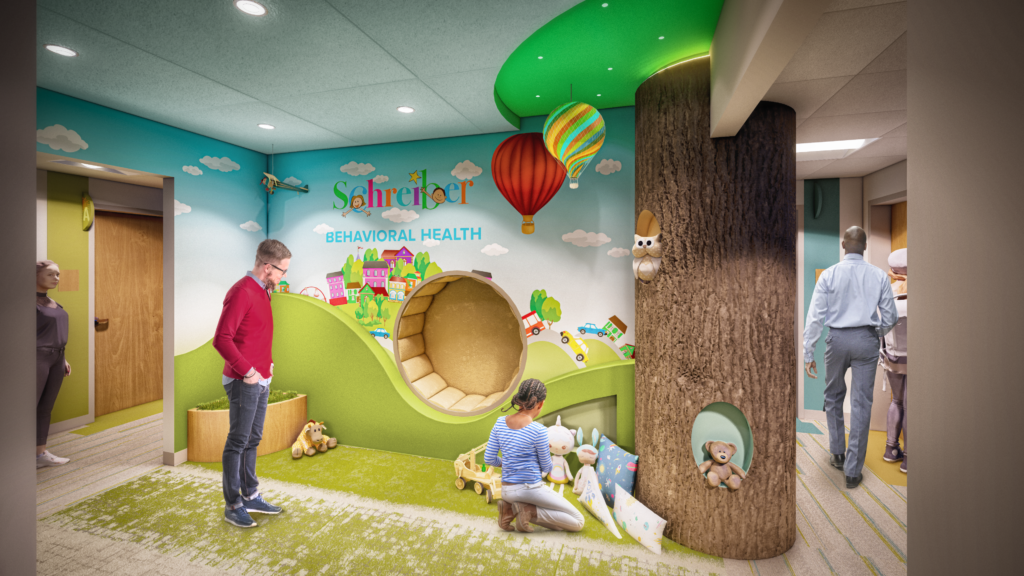
The $15,000 grant from V Kelly for Children Trust is a game-changer for our project. This funding will be utilized to furnish our new behavioral health therapy suite with essential supplies. From special needs toys crafted for autistic children to coloring and sticker by numbers books, therapy games, emotion posters, and journals – these are not just materials; they are tools that will empower our therapists to create a nurturing and supportive environment for the children we serve.
This contribution goes beyond the immediate purchase of essential supplies; it creates space in our budget to hire more therapists. By doing so, we can extend our reach and offer transformative care to even more children. This not only enhances our capacity to serve but plays a pivotal role in addressing the urgent needs of children waiting for behavioral health services in the Central Pa area.
To V Kelly for Children Trust, we extend our heartfelt gratitude for believing in our mission and recognizing the importance of investing in the mental health of our community’s children. Your generosity will leave a lasting impact on the lives of countless families, and we are truly grateful for your commitment to making a difference.
Donate today to help us expand our behavioral health services and serve more children in need.
As a nationally recognized pediatric facility, the Schreiber Center for Pediatric Development provides family-centered education and therapy programs for infants, children and adolescents with disabilities, developmental delays, and acquired injuries. Our goal-oriented approach maximizes each child’s ability to function independently within the community.
Navigating New Year’s Eve with Kids on the Autism Spectrum: A Guide to Sensory-Friendly Celebrations
December 21, 2023New Year’s Eve, a night of joy and anticipation for many, can pose unique challenges for families with kids on the autism spectrum or those with sensory processing disorders (SPD). However, with thoughtful planning and a touch of creativity, you can ensure a more comfortable and enjoyable celebration for your child. Our therapists have shared valuable insights and suggestions to help you navigate New Year’s Eve with your child on the autism spectrum or with SPD.
Celebrate at Noon or with a Different Time Zone

Consider breaking from tradition and celebrating the arrival of the New Year at noon instead of midnight. This alternative allows your child to partake in the festivities without disrupting their bedtime routine. If noon feels too early, consider celebrating with a European country’s time zone (e.g., 7 PM ET for London or 8 PM ET for Paris), allowing your child to enjoy the excitement while still maintaining a reasonable bedtime.
Explain New Year’s Eve & What They Can Expect
Take the time to explain the global celebration of New Year’s Eve and any specific traditions your family follows. Address the possibility of fireworks in the neighborhood by describing the sounds and emphasizing their safety. Watching fireworks videos on platforms like YouTube can familiarize your child with the visual and auditory experience. Consider skipping loud noise makers and opt for quieter more familiar toys if your child enjoys making noise.

If you plan to go out, discuss the event with your child and establish a “safe space” or escape plan. Prepare a sensory-friendly kit with items such as sunglasses, headphones, books, portable toys, comfort toys, and familiar foods to ease stress during celebrations at a restaurant or another location.
Host the Party at Home
Hosting the New Year’s Eve party at home provides greater control over the environment, ensuring a comfortable space for your child. Designate a quiet retreat space in advance, equipped with dimmed lighting, a sound machine, soft pillows and blankets, weighted blankets, and sensory tools your child uses for a sensory diet.
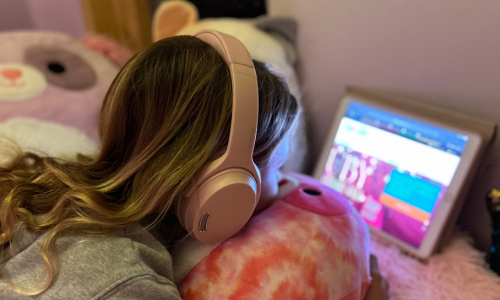
When hosting the celebration at home, engaging your kiddo in the planning process can significantly alleviate any anxiety they might feel about the event. Include them in planning the guest list, so that they know who will be there. Allow them to be a part of setting the menu, so they know there will be food that they enjoy. If they enjoy cooking, you can even encourage them to help you prepare the food.
Decorations, though essential, can overwhelm kids with ASD or SPD. Empower your child to select and hang streamers and balloons, ensuring a comfortable atmosphere. If they love arts & crafts, consider letting them make their own ball for the ball drop out of balloons, foam, play doh, cardboard, or even paper mâché. When the moment comes, drop this ball from a deck or simply throw it up into the air.
Plan a Fun Family Night In
Create a cozy fort in the living room using old bedding, comfortable pillows, and blankets and enjoy a family movie in the fort. Consider using a weighted blanket to reduce anxiety, especially if your neighborhood gets loud during New Year’s Eve celebrations.
If your family enjoys board games or puzzles, plan a night of bonding and fun around the table. This relaxed setting allows for quality family time without the sensory challenges of larger gatherings.
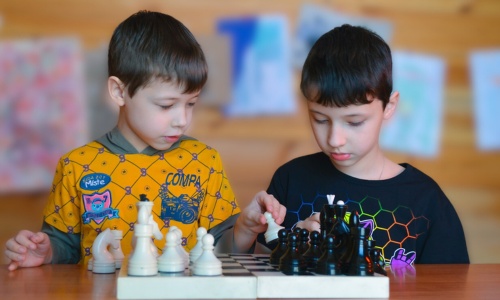
Encourage your child to create a memory book of their favorite moments from the past year. This can be a creative project, incorporating drawings, colors, or even a written story. The best part? You can keep this as a keepsake to revisit every year.
Help your children write down their New Year’s resolutions. If they love arts & crafts, supervise them while they cut up old magazines or help them print out pictures from the internet for a vision board of their goals that can be hung in their room for inspiration in the upcoming year.
Keep Your Plans Flexible
Remember, flexibility is key. Be prepared to adapt plans or even leave an event early if needed. Additionally, consider using a soothing sound machine for light sleepers to ease bedtime, especially if fireworks are expected in your neighborhood. With careful planning, you can create a New Year’s Eve that is enjoyable for your child and the entire family.
If you are interested in learning more about how Schreiber’s Pediatric Behavioral Health Services and Occupational Therapy Services can help your child visit http://www.schreiberpediatric.org/behavioral-health/
As a nationally recognized pediatric facility, the Schreiber Center for Pediatric Development provides family-centered education and therapy programs for infants, children and adolescents with disabilities, developmental delays, and acquired injuries. Our goal-oriented approach maximizes each child’s ability to function independently within the community.
Schreiber’s Commitment to Children’s Healthcare
November 20, 2023World Children’s Day is a time to reflect on the challenges that children face and to highlight the initiatives that are making a positive impact on their lives. This year, we’d like to draw your attention to the critical issues surrounding children’s healthcare and the efforts we’re making here at the Schreiber Center for Pediatric Development to address these challenges.
Access Disparities
One of the most pressing issues in children’s healthcare is the glaring disparities in access to medical services. Many children in underprivileged communities continue to lack proper healthcare due to financial, geographical, and cultural barriers. We recognize this inequality and have made great strides to help bridge this gap in central Pennsylvania.
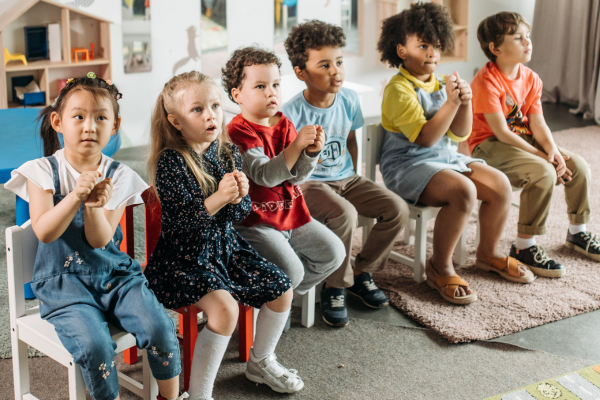
We provide comprehensive pediatric care services and affordable healthcare options. As one of the only pediatric therapy centers in the area to accept Medicaid insurance as a payment option we service many children who otherwise would not receive the pediatric therapy services they need. Our ‘Kids’ Care Fund’ ensures that every child that comes to our center for therapy receives the care they need, regardless of their family’s financial situation.
Childhood Disabilities
Children with disabilities require specialized care and support to thrive and reach their full potential. One size does not fit all when it comes to healthcare for children. Which is why we offer a range of therapy services, including mental and behavioral health, physical, occupational, and speech therapy, each tailored to the unique needs of the individual child.
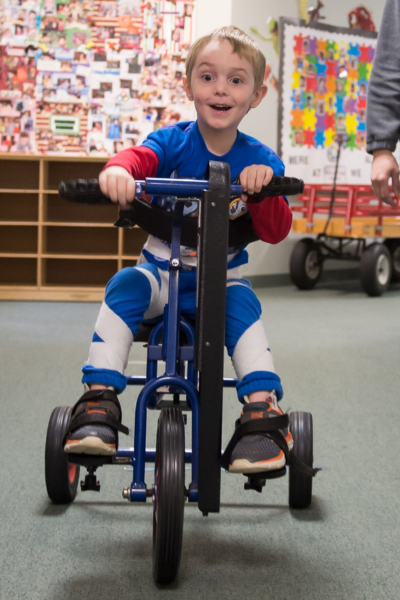
Through these programs, our Schreiber kids are provided with the tools they need to overcome the challenges they face, enabling them to flourish in their own way.
Pediatric Mental Health
The increasing mental health challenges in children are a mounting concern for parents, with far-reaching implications for the community. To help address this issue, we have integrated a new mental and behavioral health therapy department into our holistic approach to pediatric care that focuses on play-based and cognitive-behavioral therapies.
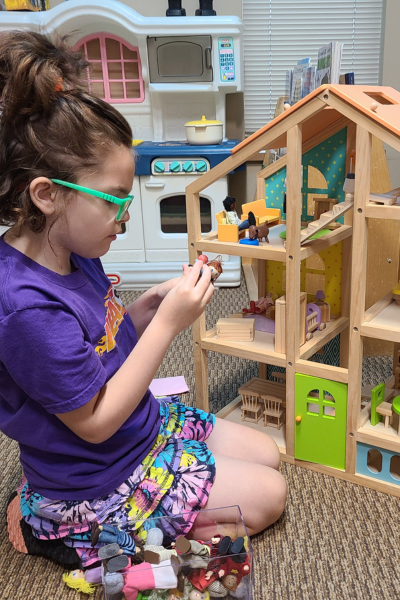
Our pediatric therapists specialize in diagnoses such as attention deficit hyperactivity disorder, autism spectrum disorders, depression, stress, anxiety, trauma related disorders, adoption, divorce, abuse, grief, and more. By providing counseling, emotional support, and resources, it is our goal to contribute to the emotional well-being of both children and their families and is an essential part of our commitment to the overall health and happiness of the children we serve.
Inclusive Education for Kids
The link between education and health is undeniable, yet many children face health issues that hinder their ability to access quality education, creating a cycle of disadvantage. Our S.T.A.R.S. Preschool is dedicated to reverse mainstreaming and has expanded our program that was once exclusively designed for children with special needs to include children of all abilities.
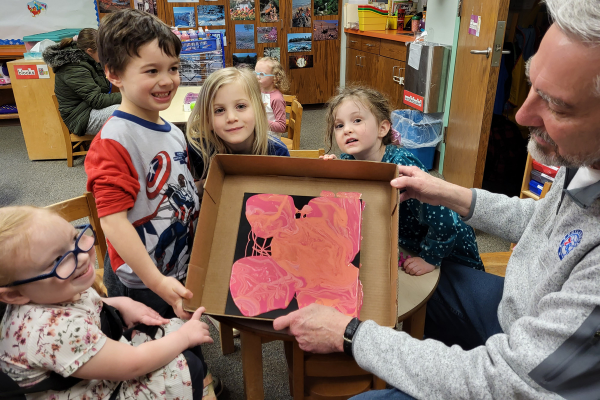
It is our hope that by playing together, our kiddos learn to not only understand and accept diversity, but to also value it. We also collaborate with the IU13 program to ensure that children with disabilities have equal access to quality education and are receiving any additional help they need. It is important to us that every child has the opportunity to learn and grow, regardless of their physical or mental challenges.
Support for Special Needs Children
We are proud to serve children with special needs and ensure that they receive the care and attention they require to thrive. We never hesitate to go the extra mile in providing resources and support for children with complex medical needs and chronic conditions. This includes assistance with obtaining medical equipment, specialized care, and respite services. We believe that by providing these services and support to our Schreiber families, children with special needs can lead fulfilling lives, and their families can find solace in knowing that their child’s unique requirements are met with compassion and expertise.
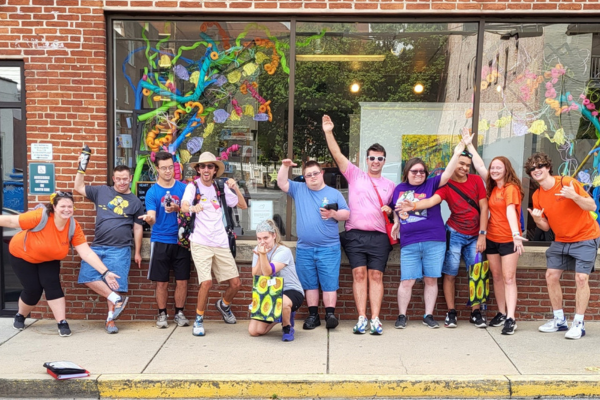
On World Children’s Day, we strive to be a beacon of hope and support, addressing the multifaceted challenges that children’s healthcare faces. Through our commitment to accessible, compassionate, and comprehensive care, we are working to improve the lives of children and their families, helping them overcome obstacles and reach their full potential. When every child receives the healthcare, support, and opportunities they deserve our purpose will be fulfilled.
To help us continue to provide necessary therapies to our Schreiber kids, consider donating to our Kids’ Care Fund to support our uncompensated care costs.
As a nationally recognized pediatric facility, the Schreiber Center for Pediatric Development provides family-centered education and therapy programs for infants, children and adolescents with disabilities, developmental delays, and acquired injuries. Our goal-oriented approach maximizes each child’s ability to function independently within the community.
ExtraGive Funds Pediatric Therapy at Schreiber
October 31, 2023Every child deserves the opportunity to lead a healthy and fulfilling life. At the Schreiber Center for Pediatric Development, we are committed to ensuring that every child, regardless of their abilities or financial circumstances, has access to the quality care they need.

The ExtraGive event (https://www.extragive.org/) is a remarkable opportunity for us to come together as a community and make a significant impact on the lives of children who rely on our pediatric therapy programs. Your generous donations during the ExtraGive event will directly benefit our occupational, physical, speech, and mental and behavioral health therapy programs, as well as our “Kids’ Care Fund” designed to cover uncompensated care expenses.
Pediatric Occupational Therapy: Feeding Program
Pediatric occupational therapy is a crucial component of the services we provide at Schreiber Center for Pediatric Development. Many children face challenges related to feeding and nutrition, and our goal is to support them in developing the necessary skills for a healthy diet. Your donations will help us establish a new feeding program that will provide personalized support to children with various feeding difficulties.
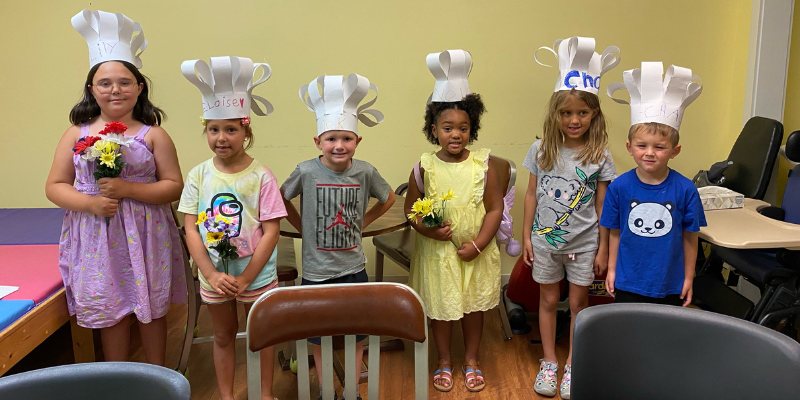
Feeding issues can be a source of tremendous stress for families, and your contributions will make it possible for us to offer specialized therapy, equipment, and resources to help these children develop the skills they need to thrive.
Pediatric Physical Therapy: Medical Mobility Equipment

Children with mobility impairments often require specialized equipment to enhance their mobility and independence. The funds donated during the ExtraGive event will be instrumental in acquiring essential medical mobility equipment for our pediatric physical therapy program.
These devices can be life-changing for children, enabling them to participate in everyday activities and improving their overall quality of life. Your support will help us ensure that no child in central PA is left without the necessary equipment to navigate the world around them.
Pediatric Speech Therapy: Communication Devices
Communication is a fundamental aspect of a child’s development, and for some children, it can be particularly challenging. Our pediatric speech therapy program is dedicated to helping children develop their communication skills, and your donations will play a pivotal role in achieving this goal.
We aim to provide augmentative and alternative communication (AAC) devices, speech-generating devices (SGDs), and other assistive communication tools to children who need them. These devices empower children to express themselves, connect with others, and engage with the world in meaningful ways.

Mental and Behavioral Health Therapy: After-School Social Programs
At Schreiber Center for Pediatric Development, we recognize the importance of mental and behavioral health in a child’s overall well-being. Your donations will support our after-school social programs, including the popular “After-School Lego Club,” designed specifically for children with autism.
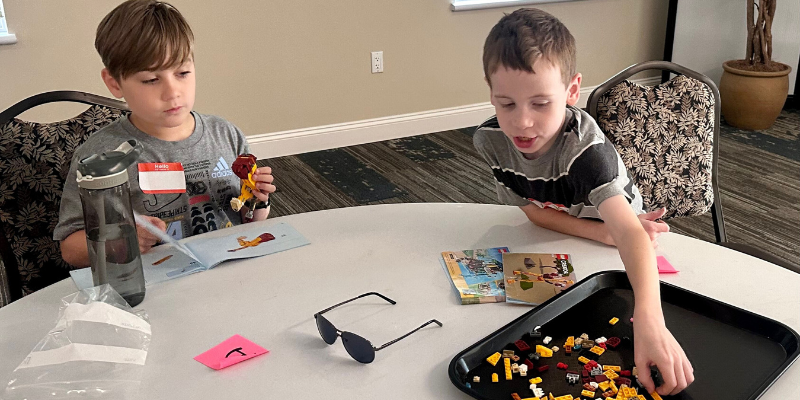
These programs offer a safe and supportive environment where children can develop social skills, build friendships, and gain confidence. Your contributions will enable us to expand these programs, reaching even more children who can benefit from them.
The “Kids’ Care Fund”: Ensuring Access to Care for All
In addition to directly supporting our therapy programs, your generous donations during the ExtraGive event will be added to our “Kids’ Care Fund.” This fund serves as a safety net, ensuring that all disabled children receive the care they need, regardless of their families’ financial circumstances.
The “Kids’ Care Fund” is a savings account that bridges the gap between what private insurance and Medicaid supplements cover and the actual cost of care. At Schreiber Pediatric, we have always made the promise that no child will be turned away, and your contributions help us fulfill this commitment.

Your support during the ExtraGive event will have a profound and lasting impact on the lives of the children we serve through our pediatric therapy programs at Schreiber Center for Pediatric Development. Whether it’s helping a child improve their feeding skills, providing essential mobility equipment, enabling communication, or fostering social connections, your generosity makes it all possible.
Furthermore, your donations will contribute to the “Kids’ Care Fund,” ensuring that no child is denied the care they deserve due to financial constraints. Together, we can make a difference in the lives of Schreiber kids and their families, offering hope, support, and a brighter future. Join us in transforming lives and creating a more inclusive and compassionate community for all children in central PA. Donate during the ExtraGive event and be a part of something truly extraordinary.
Limb Girdle Muscular Dystrophy
September 29, 2023What is Limb Girdle Muscular Dystrophy?
Limb Girdle Muscular Dystrophy is a group of muscular dystrophies which can be inherited in various ways. It equally effects males and females and symptoms begin between 8 and 15 years of age. About 2 to 10 out of 100,000 people are affected by this muscle disorder which leads to muscle weakness and muscle wasting of varying severity. Most commonly the shoulder and pelvis muscles are affected and as it progresses the hips, shoulders, arms, legs, and back muscles all weaken. The symptoms are known to progress slowly and while there is no cure the life expectancy of an individual with this diagnosis is generally within a normal range since the heart and breathing muscles are not affected.
How do I know if my child has Limb Girdle Muscular Dystrophy?
The signs and symptoms of people with Limb Girdle Muscular Dystrophy can vary widely. Even among individuals within the same family there is a good chance that the signs and symptoms will not be the same. Since symptoms can begin at any age, it’s important to keep an eye out for these common signs throughout your child’s life:
- Inability to rise from a squatting position without using the arms for leverage
- Toe walking or walking on the balls of their feet
- A waddling gait when walking
- Difficulty running
- Joint stiffness
- Abnormal spine curvature (lordosis/scoliosis)
Because these signs and symptoms are common in other muscular dystrophies, it is critical to see a medical doctor and receive a formal diagnosis so that proper treatment can be obtained. The formal diagnosis is based on symptoms, symptom severity, age at which the symptoms began, and family medical history. Doctors will perform a series of tests including: electrodiagnostic tests, laboratory tests, muscle biopsies, imaging studies, electrocardiograms, and genetic testing to confirm their diagnosis.
What Causes Limb Girdle Muscular Dystrophy?
Limb Girdle Muscular Dystrophy is a neuromuscular genetic disorder that occurs when a faulty gene results in abnormal muscle function. Many genes have been identified as contributing to this disorder so while it can be passed from parent to child, the child also could be the first in the family to have muscular dystrophy.
What are the complications of Limb Girdle Muscular Dystrophy?
While it is rare for Limb Girdle Muscular Dystrophy to affect the heart, lungs, digestive system, or other body systems outside of the muscles, it is possible. Any time the heart or lungs are affected by muscular disorders there is a chance that life expectancy will be negatively affected.
What is the treatment of Limb Girdle Muscular Dystrophy?
While there is no cure for Limb Girdle Muscular Dystrophy there are treatments for it. Treatments range from medications that are prescribed by medical professionals to help relieve symptoms relating to Limb Girdle Muscular Dystrophy to physical, respiratory, occupational, and behavioral therapies to help reduce the process of muscle weakness and wasting. Treatment is individualized for each patient and designed to enhance quality of life.
If you child has been diagnosed with Limb Girdle Muscular Dystrophy and you are interested in learning more about how Schreiber’s Pediatric Therapies can help your child visit: http://www.schreiberpediatric.org/therapy-services/
As a nationally recognized pediatric facility, the Schreiber Center for Pediatric Development provides family-centered education and therapy programs for infants, children and adolescents with disabilities, developmental delays, and acquired injuries. Our goal-oriented approach maximizes each child’s ability to function independently within the community.
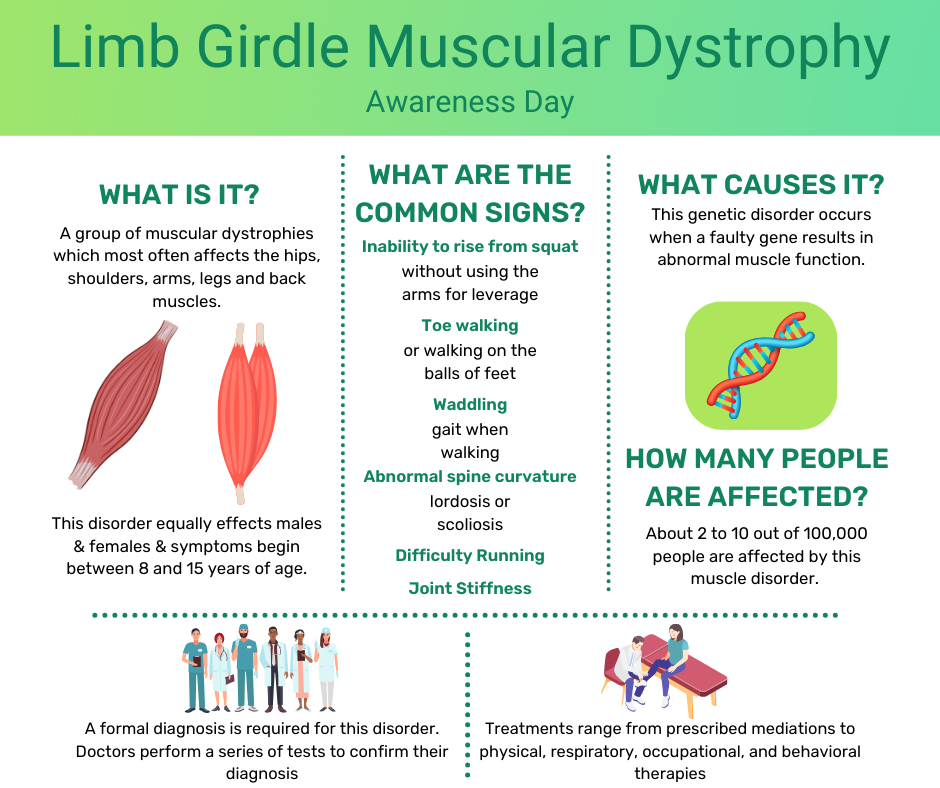
Anxiety in Kids
September 27, 2023What is Anxiety?
Anxiety is a NORMAL worry or uneasy feeling that causes kids to feel nervous and afraid. It can generate real and uncomfortable physical responses. Anxiety is often triggered by new situations which makes it very common in children. For some children, anxiety affects their behavior and thoughts daily, which can interfere with their home life, school, and their social well-being. For these children, professional help is often the best answer.
Use these tips to help you spot anxiety in your child and help them to learn skills to cope with their anxiety now and in the future.
How Anxiety Feels to Kids
Anxiety can be a confusing and scary feeling for kids, especially if they have never experienced these emotions and physiological effects before and don’t have a name for the way they are feeling. Even once a child knows that they have anxiety and the signs and symptoms they may experience when they become anxious, they may feel embarrassed or ashamed. The physical and psychological symptoms of anxiety can present in a variety of different ways in your child. Look for these common signs.

How Anxiety Shows Up in Kids
If your child is experiencing anxiety, they may begin to act differently. For some kids this may mean that they are acting out and becoming more difficult and defiant, but for other children it might mean that they begin to withdraw from social situations or even their families. It is important to remember that when it comes to anxiety in kids it is not a one size fits all situation. You know your child’s normal behavior better than anyone else, and the best person to determine if their behavior has suddenly or drastically changed. These are a few common signs that are associated with anxiety in kids.

Common Anxiety Triggers for Kids
Since anxiety is often triggered by new situations your child may experience a bout of anxiety occasionally, when something in their life feels different or beyond their control. There are several common triggers for anxiety in kids which range from social factors, or pressure to perform well, to fear of change or the future, and even conflict or change at home. Your child may be experiencing anxiety due to a variety of different things. Below are just a few examples of common anxiety triggers for kids.

Teach Your Child What They Can & Cannot Control
It can be very helpful to remind your child which things they are feeling anxious about are within their control, and which are not. You may find that much of what your child is anxious about are things they can’t control. So it’s important to teach them the difference between what they can and cannot control, so that they have a better understanding of their own anxieties. It can be helpful for kids with anxiety to have a list that they can refer to that explains these different behaviors. You can use the list below as a starting point and tailor it to your child’s specific anxiety triggers for a helpful guide they can refer to as often as they may need.

Grounding Techniques for Kids
The 5-4-3-2-1 Grounding technique is helpful both for adults and kids with anxiety as it helps connect the anxious party with the present by exploring the five senses and their immediate surroundings. This technique is especially helpful if the cause of their anxiety is something that already happened or may happen in the future. If the child is currently in the midst of their anxiety trigger the grounding technique may be a bit difficult for them to accomplish, but is still worth an attempt as long as it can be practiced safely. When your child is feeling anxious encourage them to complete the following grounding exercise and see if it helps bring them back to a point of relative calmness. The convenience of being able to perform this technique in almost any location is just one of the many reasons it is so beneficial to learn and remember.

While all children are likely to experience some anxiety in their life on occasion, it is important to recognize if your child’s anxiety has become severe enough to impact their daily lives. If this is the case seeing a pediatric behavioral health therapist may be in your child’s best interest as they can provide more individualistic approaches to help mitigate the causes and symptoms that your child is experiencing. They will also be able to help you and your child understand where the anxiety is coming from and tips, tricks, and tools to help reduce the anxiety your child feels.
If you are interested in learning more about how Schreiber’s Pediatric Behavioral Health Services can help your child visit http://www.schreiberpediatric.org/behavioral-health/
As a nationally recognized pediatric facility, the Schreiber Center for Pediatric Development provides family-centered education and therapy programs for infants, children and adolescents with disabilities, developmental delays, and acquired injuries. Our goal-oriented approach maximizes each child’s ability to function independently within the community.
How to Support the Behavioral Health of Deaf Children
September 21, 2023Deaf children, like all children, deserve every opportunity to lead healthy and fulfilling lives. However, they often encounter unique challenges that can impact their behavioral health and overall well-being. From social isolation to academic struggles, the mental health journey for Deaf children can be complex. This post will explore the various behavioral health concerns Deaf children may face and look at different strategies to provide the support they need.
Understanding the Challenges
Social Isolation and Peer Exclusion: Communication barriers can lead Deaf children to feel isolated and make it difficult for them to form connections with their peers. They may find themselves on the outskirts of social interactions, leading to feelings of loneliness and exclusion.
Coping with Stigmas and Misconceptions: Deafness is often misunderstood, leading to stigmatization and misconceptions. These misunderstandings can impact a Deaf child’s self-esteem and self-worth.
Anxiety and Depression: The frustration of miscommunication and the pressure to fit in can contribute to anxiety and depression among Deaf children.
Academic Struggles: Inaccessible educational environments and inadequate support for children who are deaf, can lead to their academic struggles. These struggles can cause additional stress and have a negative impact on mental health.
Miscommunication within Families: Communication barriers between Deaf children and their hearing family members can lead to misunderstandings and strained relationships. Without a support system at home, their mental health can quickly decline.
Struggles with Self-Identity and Self-Esteem: Deaf children may grapple with their identity, especially when they feel caught between the Deaf and hearing worlds.
Lack of Access to Mental Health Services: Limited access to mental health services that cater to the unique needs and communication preferences of Deaf children can further exacerbate these challenges.
Strategies for Support
Identify & Encourage: Early intervention is key. By addressing potential issues early on and teaching children who are deaf coping skills and emotional regulation techniques, we can encourage Deaf children to embrace their identity and build self-confidence.
Effective Communication: We strive to ensure that Deaf children have access to communication methods that suit them. You can help by educating yourself and others about Deaf culture and communication strategies to foster understanding.
Inclusive Education: Advocating for inclusive education that allows Deaf children to learn alongside their hearing peers helps minimize social isolation. By implementing anti-bullying programs you can also help prevent and address bullying of children who are deaf.
Peer Support & Role Models: It’s important to create opportunities for Deaf children to connect with peers who share similar experiences. In introducing them to successful Deaf role models you can also help spark their inspiration and guide them to success.
Mental Health Services: Ensuring access to mental health services is one of the best things you can do to support the behavioral health of Deaf children. Specifically those that cater to Deaf children’s communication preferences. Be sure to provide information about these services in accessible formats.
Creating an Inclusive Environment
Supporting the behavioral health of Deaf children requires a community effort. By approaching their challenges with empathy and understanding, we can create environments where they can thrive. Let’s work together to build a world where Deaf children are empowered to achieve their full potential and lead emotionally healthy lives.
If you child is Deaf and you are interested in learning more about how Schreiber’s Pediatric Therapies can help your child visit: http://www.schreiberpediatric.org/therapy-services/
As a nationally recognized pediatric facility, the Schreiber Center for Pediatric Development provides family-centered education and therapy programs for infants, children and adolescents with disabilities, developmental delays, and acquired injuries. Our goal-oriented approach maximizes each child’s ability to function independently within the community.
